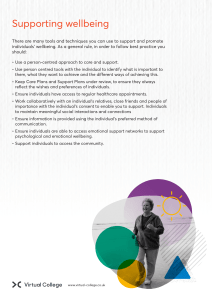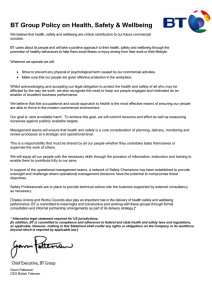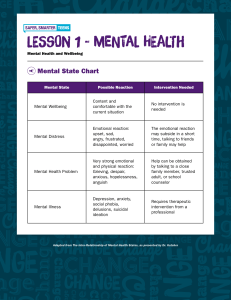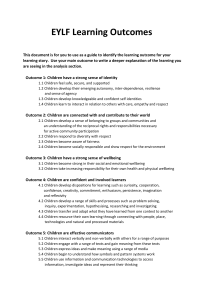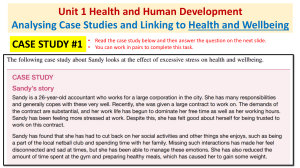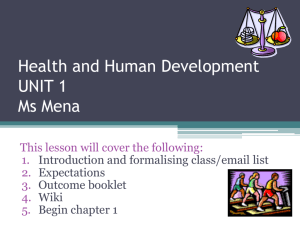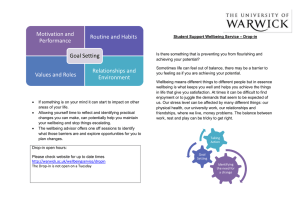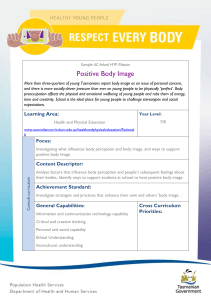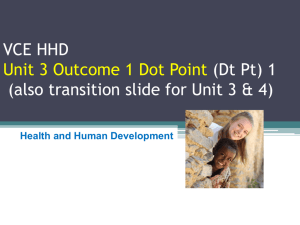File - Health and Human Development
advertisement
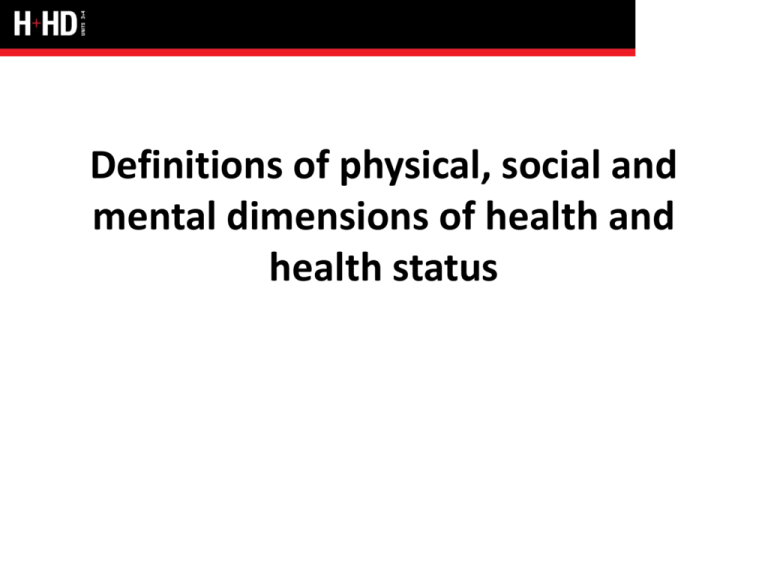
Definitions of physical, social and mental dimensions of health and health status Defining ‘health’ • What does the world ‘health’ mean to you? – What are your perceptions of health? – What images do you picture when you hear the word ‘health’? – What factors influence your view of health? – How do your views differ from those of your classmates’? WHO definition of health (1946) ‘A state of complete physical, mental and social wellbeing and not merely the absence of disease or infirmity’ Ottawa Charter definition of health ‘To reach a state of complete, physical, mental and social wellbeing, an individual or group must be able to identify and realize aspirations, to satisfy needs, and to change or cope with the environment. Health is, therefore, seen as a resource for everyday life, not the objective of living. Health is a positive concept emphasizing social and personal resources, as well as physical capacities’ • The Charter identified the essential conditions and resources for health as peace, shelter, education, food, income, stable ecosystem, sustainable resources, social justice and equity. Dimensions of health Physical dimensions Aspects include: • ability to resist disease • ability to recover from illness and injury • sufficient energy, strength and coordination to engage in daily physical activity • appropriate weight and nutrition Social dimensions Aspects include: • development and maintenance of social interactions and relationships • positive and effective communication • cultivation of social skills • positive contribution to the community • accessing support services when needed Mental dimensions Aspects include: • ability to understand and express emotions • self confidence and positive self esteem • ability to cope with challenging situations and to deal with stress • ability to solve problems • capacity to love, work and play Health status • A way of measuring or describing the health of individuals or populations • Important data: Life expectancy, information about diseases, comparisons with other similar countries • Information about the health status of a population helps governments shape health policies and to determine how health services should be delivered optimal health. • A term that is sometimes used is optimal health. • This is the best possible health to which someone can realistically aspire, in some or all of the three dimensions. Achieving a complete state of optimal health means that an individual experiences a balance of all these dimensions; all three are important. Summary • Health is an important part of wellbeing, of how people feel and function • Health contributes to social and economic wellbeing • Health is not simply the absence of illness or injury • There are degrees of good health as well as poor or bad health • It is important to see health in a broad social context
